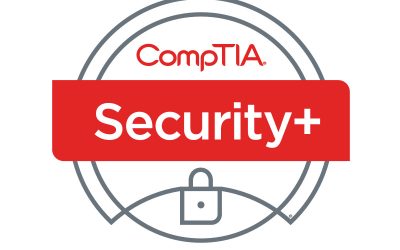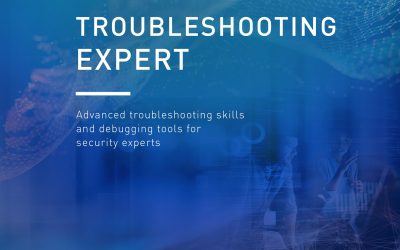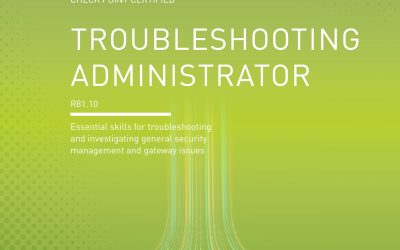
Microsoft Official Course (MOC)
AZ-300 Azure Solutions Architect Technologies
За Курса (About this Course):
-
This course teaches IT Professionals how to manage their Azure subscriptions, create and scale virtual machines, implement storage solutions, configure virtual networking, back up and share data, connect Azure and on-premises sites, manage network traffic, implement Azure Active Directory, secure identities, and monitor your solution.
Цели – Какво ще научите (Course Goals/Skills):
- How to manage their Azure resources, including deployment and configuration of virtual machines, virtual networks, storage accounts, and Azure AD that includes implementing and managing hybrid identities.
- Learn how cloud resources are managed in Azure through user and group accounts, and how to grant access to Azure AD users, groups, and services using Role-based access control (RBAC).
- Learn about the different storage accounts and services as well as basic data replication concepts and available replication schemes.
- Introduced to Storage Explorer as a convenient way to work with Azure storage data.
- Learn the types of storage and how to work with managed and custom disks.
- Azure blob storage is how Azure stores unstructured data in the cloud, and you will work with blobs and blob containers. In addition to blob storage, the course covers Table and Queue storage as storage options for structured data.
- Learn how to create and deploy virtual machines in Azure, using the Azure portal, PowerShell, and ARM templates. The course includes instruction on deploying custom images and Linux virtual machines. You will see how to configure the networking and storage components of virtual machines. Deploying highly available virtual machines is critical for planned and unplanned events, and you will learn how to use availability sets to ensure that virtual machine resources are available during downtime.
- Learn the monitoring tools and capabilities provided by Azure, including Azure Alerts and Activity Log. In addition to alerts and logs, you will be introduced to Log Analytics as an effective data analytics solution for understanding your system status and health. And perhaps the most exciting thing you will learn is how to use the Azure Resource Manager deployment model to work with resources, resource groups, and ARM templates.
- Discover, assess, plan and implement a migration of on-premises resources and infrastructure to Azure.
- Learn how to use Azure Migrate to perform the discovery and assessment phase that is critical to a successful migration. Students will also learn how to use Azure Site Recovery for performing the actual migration of workloads to Azure. The course focuses primarily on using ASR on a Hyper-V infrastructure to prepare and complete the migration process.
- Learn how to deploy serverless computing features like Azure Functions, Event Grid, and Service Bus. You will learn how Azure Multi-Factor Authentication helps safeguard access to data and applications, helping to meet customer demand for a simple sign-in process. Also, how to use Azure Active Directory Privileged Identity Management to manage, control, and monitor access to Azure resources within your organization.
- Manage and maintain the infrastructure for the core web apps and services that developers build and deploy.
- Learn how Azure App Service is used as a Platform as a Service (PaaS) offering for deploying cloud apps for web and mobile environments.
- Get a glimpse of how to implement advanced networking features like Application Gateway and how to configure load balancing. Learn to integrate on-premises networks with Azure virtual networks and to use Network Watcher to monitor and troubleshoot issues.
- Operations are done in parallel and asynchronously. And, how your whole enterprise system must be resilient when failures occur, and just as importantly, how deployments can be automated and predictable. By using the Azure Application Architecture Guide and Azure reference architectures as a basis, you will understand how monitoring and telemetry are critical for gaining insight into the system.
- You will dive into the cloud design patterns that are important, such as partitioning workloads where a modular application is divided into functional units that can be integrated into a larger application. In such cases, each module handles a portion of the application’s overall functionality and represents a set of related concerns.
- Load balancing where the application traffic, or load, is distributed among various endpoints by using algorithms. Load balancers allow multiple instances of your website to be created so they can behave in a predictable manner. In Azure, it is possible to use virtual load balancers, which are hosted in virtual machines, if a company requires a very specific load balancer configuration.
- Transient fault handling which helps define the primary differences between developing applications on-premises and in the to handle transient errors. Transient errors are errors that occur due to temporary interruptions in the service or to excess latency.
- Discussion of hybrid networking that provides an overview of site-to-site connectivity, point-to-site connectivity, and the combination of the two.
- To build Logic App solutions that integrate apps, data, systems, and services across enterprises or organizations by automating tasks and business processes as workflows. Logic Apps is cloud service in Azure that simplifies how you design and create scalable solutions for app integration, data integration, system integration, enterprise application integration (EAI), and business-to-business (B2B) communication, whether in the cloud, on premises, or both.
- How Azure Service Fabric is a distributed systems platform that makes it easy to package, deploy, and manage scalable and reliable microservices and containers. Service Fabric also addresses the significant challenges in developing and managing cloud native applications. Developers and administrators can avoid complex infrastructure problems and focus on implementing mission-critical, demanding workloads that are scalable, reliable, and manageable. Service Fabric represents the next-generation platform for building and managing these enterprise-class, tier-1, cloud-scale applications running in containers.
- See how Azure Kubernetes Service (AKS) makes it simple to deploy a managed Kubernetes cluster in Azure. AKS reduces the complexity and operational overhead of managing Kubernetes by offloading much of that responsibility to Azure. As a hosted Kubernetes service, Azure handles critical tasks like health monitoring and maintenance for you.
- Learn how to Implement authentication in applications (certificates, Azure AD, Azure AD Connect, token-based), implement secure data (SSL and TLS), and manage cryptographic keys in Azure Key Vault.
- Learn how to configure a message-based integration architecture, develop for asynchronous processing, create apps for autoscaling, and better understand Azure Cognitive Services solutions.
- Managing Azure Subscriptions and Resources
- Implementing and Managing Storage
- Deploying and Managing VMs
- Configuring and Managing Virtual Networks
- Managing Identities using Azure Active Directory
- Evaluating and Performing Server Migration to Azure
- Implementing and Managing Application Services
- Implementing Advanced Virtual Networking.
- Securing Identities using Azure AD.
- Design and Connectivity Patterns
- Hybrid Networking
- Address Durability of Data and Caching
- Measure Throughput and Structure of Data Access
- Use shell commands to create an App Service Web App
- Create Background Tasks
- Use Swagger to document an API
- Create a reliable service
- Create a Reliable Actors app
- Hands-on with Reliable collections
- Understand the Azure Container Registry
- Use Azure Container instances
- Understand how to Implement authentication using certificates, Azure AD, Azure AD Connect, and tokens.
- Implement Role-aBsed Access Control (RBAC) authorization.
- Implement secure data for end-to-end encryption.
- Implement secure data for implementing SSL and TLS communications.
- Use Azure Key Vault to manage cryptographic keys.
- How to configure a message-based integration architecture
- Understand how to Develop for Asynchronous Processing
- Begin creating apps for Autoscaling
- Understand Azure Cognitive Services Solutions
Курсът е предназначен за (Audience):
- Successful Cloud Solutions Architects begin this role with practical experience with operating systems, virtualization, cloud infrastructure, storage structures, billing, and networking.
Формат на курса


Език на курса: български (английски е наличен като опция)
Учебни Метериали: в електронен формат (Учебните материали са на английски), включени в цената с неограничен достъп.
Лабораторна среда: всеки курсист разполага със собствена лаб среда, където се провеждат упражненията, част от курса.


Продължителност
- 4 работни дни (09:00 – 17:00)
или
- 32 уч.ч. обучение (теория и практика) в извънработно време с продължителност 3.5 седмици
- събота и неделя 10:00 – 14:00, 14:00 – 18:00, 18:00 – 22:00
- понеделник и сряда 19:00 – 23:00
- вторник и четвъртък 19:00 – 23:00
Плащане
Заявка за издаване на фактура се приема към момента на записването на съответния курс.
Фактура се издава в рамките на 7 дни от потвърждаване на плащането.
Предстоящи Курсове
За повече информация използвайте формата за контакт.
Ще се свържем с Вас за потвърждаване на датите.
Предпоставки (Изисквания) за Участие (Prerequisites):
-
-
- Understanding of on-premises virtualization technologies, including: VMs, virtual networking, and virtual hard disks.
- Understanding of network configuration, including TCP/IP, Domain Name System (DNS), virtual private networks (VPNs), firewalls, and encryption technologies.
- Understanding of Active Directory concepts, including domains, forests, domain controllers, replication, Kerberos protocol, and Lightweight Directory Access Protocol (LDAP).
- Understanding of resilience and disaster recovery, including backup and restore operations.
-
Курсът подготвя за следните сертификационни нива
- AZ-300 Azure Solutions Architect Technologies
- Може да се сертифицирате в нашия тест център с ваучер с отстъпка от цената на изпит.








